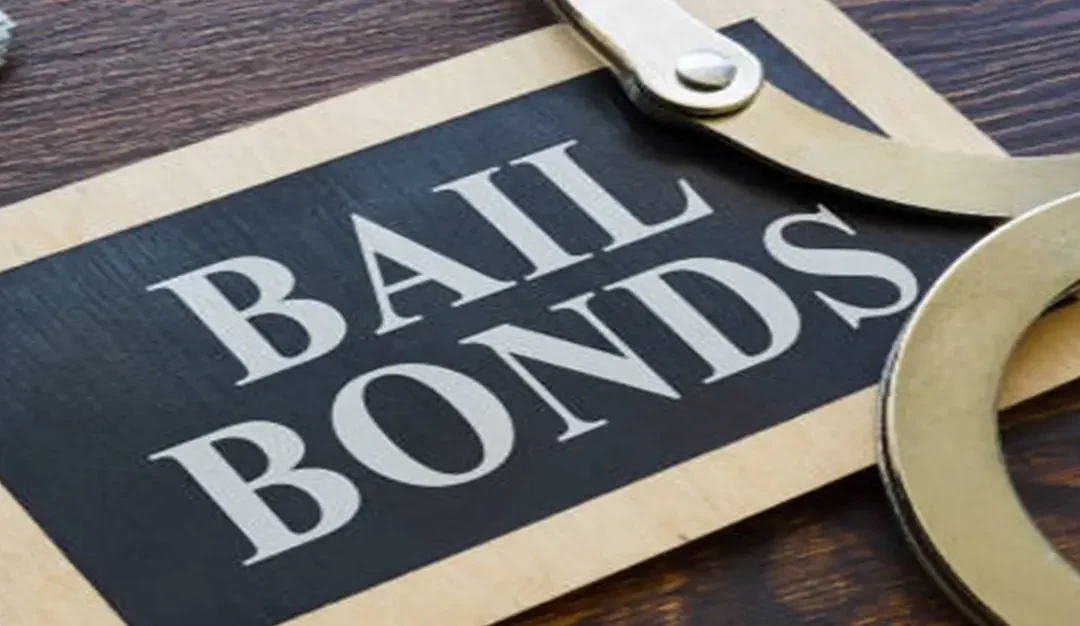Key Advice for Choosing the Right bails bond near me Agency
Understanding the Process of Securing a Bail Bond: What You Need to Know
Safeguarding a bail bond can be a complex procedure. It involves recognizing various facets, from the sorts of bonds readily available to the connected expenses. People often forget crucial details that can impact their situation. The steps to obtain a bail bond require careful factor to consider and knowledge of duties. As the procedure unfolds, essential decisions must be made that could influence the result substantially. What should one prepare for when traversing this challenging landscape?
What Is a Bail Bond?
A bail bond is a financial agreement that enables an apprehended person to be released from custodianship while awaiting test. This arrangement entails a 3rd party, normally a Bail bondsman, that guarantees the court that the person will return for their scheduled court looks. For this service, the Bail bondsman generally charges a non-refundable charge, typically a percentage of the complete Bail amount.
Bail bonds serve a crucial feature in the lawful system, offering a device for accuseds to keep their freedom throughout the pre-trial stage. This can assist them get ready for their defense more efficiently. The Bail quantity is determined by the court based on numerous elements, including the severity of the offense, the defendant's criminal history, and the risk of trip. Inevitably, a bail bond stands for a commitment to support legal responsibilities while allowing individuals the possibility to proceed their lives up until their court date.
Just How Bail Bonds Work
Bail bonds operate via a simple procedure that entails numerous key steps. An offender or their representative get in touches with a bail bond representative after an arrest. The representative analyzes the situation, including the Bail quantity established by the offender and the court's background. When a choice is made, the agent normally calls for a non-refundable fee, usually a percentage of the total Bail amount, often ranging from 10% to 15%.
After the fee is paid, the agent secures the Bail by signing a contract with the court, making certain that the defendant stands for all scheduled court days. If the defendant fails to show up, the bail bond agent is in charge of the full Bail quantity, leading the agent to choose the defendant. Throughout this process, the bail bond agent plays a crucial function in promoting the release of the accused while taking care of the associated monetary risks.
Sorts Of Bail Bonds
Understanding the different kinds of Bail bonds is essential for defendants and their families as they browse the legal system. There are several typical types of Bail bonds offered, each serving a particular objective.
One of the most widespread is the surety bond, which entails a bondsman ensuring the complete Bail quantity for a cost. Another kind is the cash bond, where the accused or their family members pays the full Bail amount in cash money straight to the court.
Home bonds permit individuals to use actual estate as security for the Bail quantity. Furthermore, government bonds specify to federal instances, usually calling for a higher premium and much more stringent problems.
Immigration bonds are made use of in instances concerning migration infractions. Each sort of bond has unique treatments and implications, making it crucial for those involved to comprehend their options thoroughly.
The Costs Associated With Protecting a Bail Bond
Safeguarding a bail bond entails numerous expenses that can significantly affect an offender's finances. The primary cost is the premium, usually ranging from 10% to 15% of the total Bail amount set by the court. This premium is non-refundable, despite the case end result, representing the bail bond agent's charge for their services. Extra costs may consist of administrative fees, which some agents impose for handling documents, and collateral demands, where the offender may need to give assets to protect the bond. In situations entailing higher Bail amounts, the need for security becomes much more pronounced. bail bonds. Additionally, defendants ought to know possible prices connected to missed court days, which can lead to additional punitive damages. Understanding these prices is crucial for accuseds and their family members, as they can greatly influence the financial worry connected with safeguarding a bail bond
The Process of Acquiring a Bail Bond
The procedure of acquiring a bail bond entails a series of organized steps that begin with the entry of an application. Applicants must also take into consideration numerous payment and collateral options that might be required by the bail bond company. Understanding these components is necessary for maneuvering via the bail bond system successfully.
Application Submission Tips
When people are knowledgeable, maneuvering the application submission actions for obtaining a bail bond can be straightforward. The first step involves choosing a trusted bail bond firm, which typically needs research study and referrals. As soon as a firm is selected, the applicant must finish a bail bond application, providing vital details such as the accused's information, fees, and Bail quantity. Next, the candidate might need to existing recognition and any kind of relevant paperwork to support the application. After sending the application, the bail bond like it business will certainly assess the details and analyze the threat entailed. If accepted, an agent will outline the conditions prior to completing the agreement. This process, while systematic, can vary slightly depending upon the Bail and the jurisdiction bond firm.

Payment and Collateral Options
When getting a bail bond, understanding repayment and collateral options is important, as these elements can significantly influence the total expense and terms of the contract. Commonly, bail bond business need a non-refundable fee, generally a percentage of the complete Bail quantity, which functions as their earnings. Some firms might provide flexible layaway plan, enabling customers to pay in installments. In addition, security can be required to safeguard the bond, which might consist of properties like residential property, lorries, or other belongings. The kind and value of collateral can influence the bond's authorization and terms. Clients need to meticulously assess their monetary situation and alternatives to assure they select a service that lines up with their budget and situations.
Duties of the Indemnitor
Guiding via the intricacies of Bail bonds needs a clear understanding of the obligations of the indemnitor. The indemnitor, frequently a family member or friend of the offender, plays a significant function in the Bail process. This private concurs to assume economic responsibility, guaranteeing that the Bail amount is paid if the offender falls short to show up in court. It is necessary for the indemnitor to preserve communication with the bail bond representative throughout the process, supplying any required details and updates relating to the accused's circumstance.
Furthermore, the indemnitor must secure collateral, which may include residential or commercial property or valuables, to back the bail bond. This collateral safeguards the bail bond company versus prospective losses - bail bonds. Must the defendant fail to adhere to court mandates, the indemnitor encounters the danger of shedding their security and may be held answerable for the whole Bail amount. Because of this, comprehending these duties is crucial for the indemnitor's monetary stability

Usual Misconceptions Concerning Bail Bonds
Many individuals harbor misunderstandings regarding Bail bonds, which can complicate their understanding of the Bail procedure. One prevalent misconception is that Bail bonds are a type of payment that guarantees an accused's release. Actually, they are a guarantee to the court that the defendant will certainly stand for their set up hearings. One more common belief is that only affluent people can afford Bail. Bail bondsmen typically bill a percentage of the total Bail amount, making it available to a more comprehensive variety of individuals. In addition, some individuals assume that Bail is refundable. While the premium paid to the Bail bondsman is not refundable, the Bail amount itself might be returned upon the conclusion of the situation, supplied the accused fulfills all court needs. Resolving these myths is essential for people passing through the intricacies of the Bail system and guaranteeing they make educated decisions.
Regularly Asked Inquiries
Can I Safeguard a Bail Bond for Someone in An Additional State?
Safeguarding a bail bond for a person in another state is feasible, however it usually requires collaborating with a bondsman certified because state - bail bonds. Each jurisdiction has details policies that must be complied with throughout this procedure
What Happens if the Accused Skips Bail?
A warrant is usually provided for their arrest if an accused skips Bail. The bondsman might likewise pursue recuperation initiatives, which what is the purpose of bail might entail working with fugitive hunter to collar the person and locate.
Are Bail Bondsmen Managed by the Federal government?
Bail bondsmen are certainly managed by federal government authorities. Regulations vary by state, but they generally need licensing, adherence to financial practices, and conformity with laws to ensure reasonable therapy of accuseds and their family members.
Can I Use Collateral Other Than Money?
Security besides cash money can typically be made use of for Bail bonds, depending upon the Bail bondsman's policies. Usual options include home, lorries, or other important possessions, which must usually be assessed and concurred upon.
What Is the Duty of a Co-Signer in a Bail Bond?
If the offender fails to show up in court, the role of a co-signer in a bail bond is to ensure settlement. This specific accepts economic duty, guaranteeing that the bail bond contract is supported and enforceable.
If the accused falls short to show up, the bail bond agent is responsible for the complete Bail quantity, leading the representative to seek out the offender. When a firm is selected, the applicant must complete a bail bond application, providing crucial information such as the offender's information, fees, and Bail quantity. Commonly, bail bond firms call for a non-refundable charge, usually a percent of the total Bail amount, which serves as their revenue. Many individuals harbor misconceptions what happens to bail money concerning Bail bonds, which can complicate their understanding of the Bail process. Collateral various other than cash money can usually be used for Bail bonds, depending on the Bail bondsman's plans.